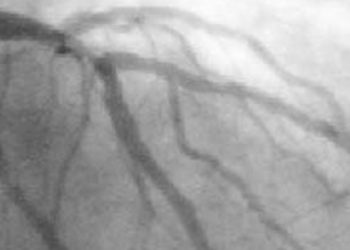Age dependent associations of risk factors with heart failure
1. Risk factors, such as hypertension, diabetes, smoking and history of myocardial infarction, were associated with a higher risk of developing heart failure in younger populations compared to older populations.
2. Population-attributable risk of heart failure was better explained by traditional risk factors in younger than in elderly patients.
Evidence Rating Level: 2 (Good)
Heart failure, which can affect up to 1 in 5 adults, is usually found in patients 65 years old and above but not exclusively. Reports have noted that younger adults who develop heart failure are usually, non-white, obese, and diabetic. This study tried to characterize whether age has an effect on traditional risk factors on development of heart failure. This cohort study amalgamated data from three observational, prospective, community based cohorts with heart failure outcomes (Framingham Heart Study, Prevention of Renal and Vascular Endstage Disease, Multi-Ethnic Study of Atherosclerosis). A total of 24 675 participants without heart failure, with a median follow-up of 12.7 years, were analyzed. The incidence of developing heart failure in this study was 1% in patents <55 years of age, 5% in 55-64 years of age, 10% in 65-74 years of age, and 18% in >74 years of age. Risk factors typically associated with heart failure had more of an impact on younger patients such as hypertension (HR 3.02 in <55 years old vs HR 1.40 in >74 years old, p<0.05), diabetes (HR 3.86 in <55 years old vs HR 1.66 in >74 years old, p<0.05), smoking (HR 2.58 in <55 years old vs HR 1.21 in >74 years old, p<0.05) and previous myocardial infarction (HR 3.30 in <55 years old vs HR 1.35 in >74 years old, p<0.05). Further, in patients <55, risk of developing heart failure was better explained by traditional risk factors compared to those >74 years age (75% vs. 53%). Limitations of this study include that confounding factors, such as whether hypertension was treated, were not all captured, and that there was a lower event rate in younger populations leading to unpowered calculations for secondary outcomes. Future research looking at additional risk factors such as exercise and use of cardiovascular drugs (lipid-lowering therapy, antihypertensive therapy) can provide additional information on the effect of these.
Click to read the study in BMJ
Image: PD
©2020 2 Minute Medicine, Inc. All rights reserved. No works may be reproduced without expressed written consent from 2 Minute Medicine, Inc. Inquire about licensing here. No article should be construed as medical advice and is not intended as such by the authors or by 2 Minute Medicine, Inc.








